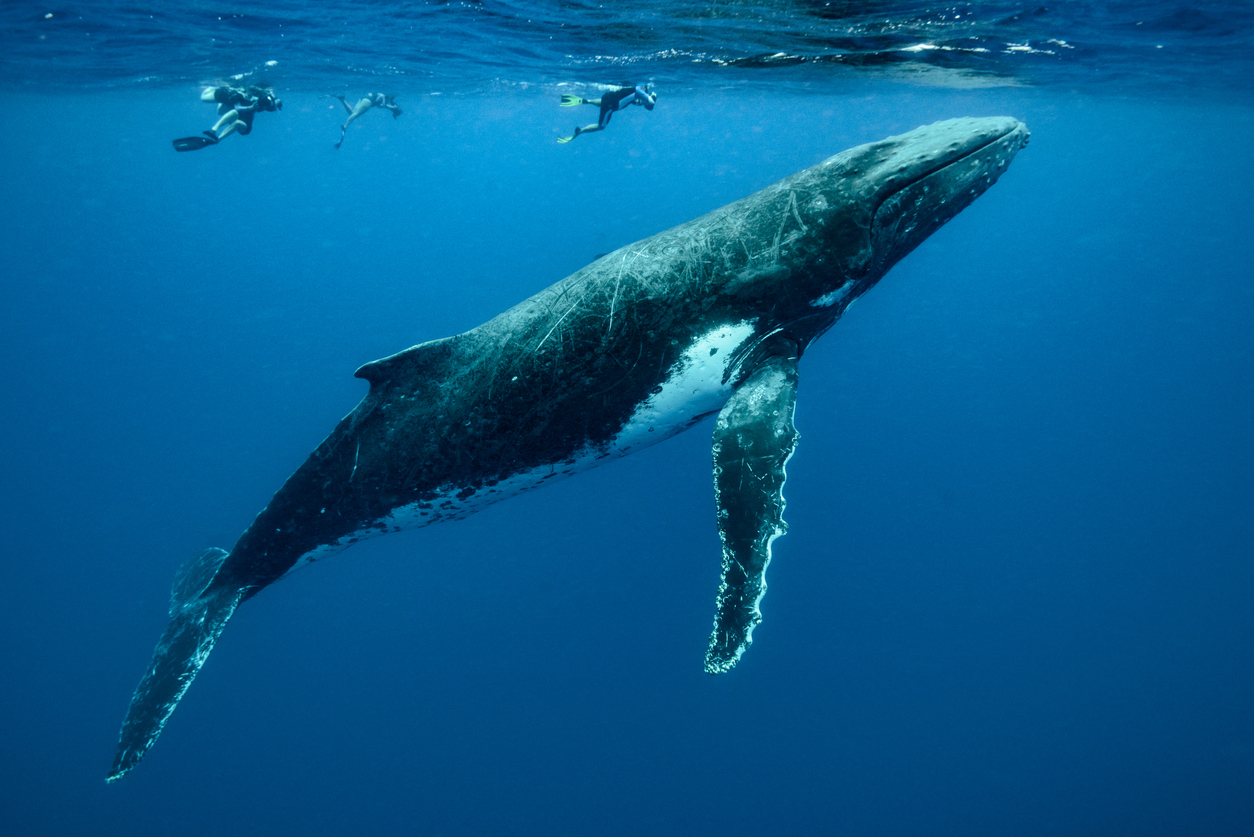Media Release
From: AUT UniversityTongan Whales Affected by Tourism
Research published today in the scientific journal PLOSOne shows that the intensive swim-with-whale tourism activities in Vava’u, Tonga is causing disturbance to natural behaviour patterns.
Vava’u is group of islands in northern Tonga which is an important breeding and nursery area for humpback whales. Over the past 20 years it has become a popular location for “swim-with-whales” tourism and over 20 commercial operators take thousands of tourists out to snorkel close to the whales.
AUT PhD researcher Lorenzo Fiori examined the effects of these swim-with-whales activities by using drones to video record the behaviour of the whales. When he compared the behaviour of the whales when there were no tourists close by with behaviour when tourists were in the water snorkelling close to them, he found clear evidence of avoidance.
Fiori’s research shows that nearly 80% of swim-with-whales activities focus on mother whales with new-born calves. More importantly his results show mother whales increased their dive time and separated from their calves more frequently when swim-with-whale activities were occurring.
Additional results suggest that the tourism activities are disturbing mother-calf pairs and this is concerning given the first few months of a whale’s life is a critical period.
The Tongan government has implemented regulations in an attempt to manage whale-based tourism in the Kingdom to minimise the potential of negative impacts. However, Fiori’s research also finds that adherence to important aspects of these regulations is poor.
Fiori’s primary supervisor, Associate Professor Barbara Bollard says that “this research is important because it provides evidence that the whale tourism industry needs to be more carefully managed in Tonga.”
Professor Mark Orams, also involved in the project, agrees and states “humpback whales are very important to the Tongan people. They recognise that their annual migration to Tongan waters to mate, give birth and raise their young is special, they are very proud of this. At AUT we will continue to work with the Tongan government and the tourism industry to ensure that we can provide support for them to continue to care for their whales”.


